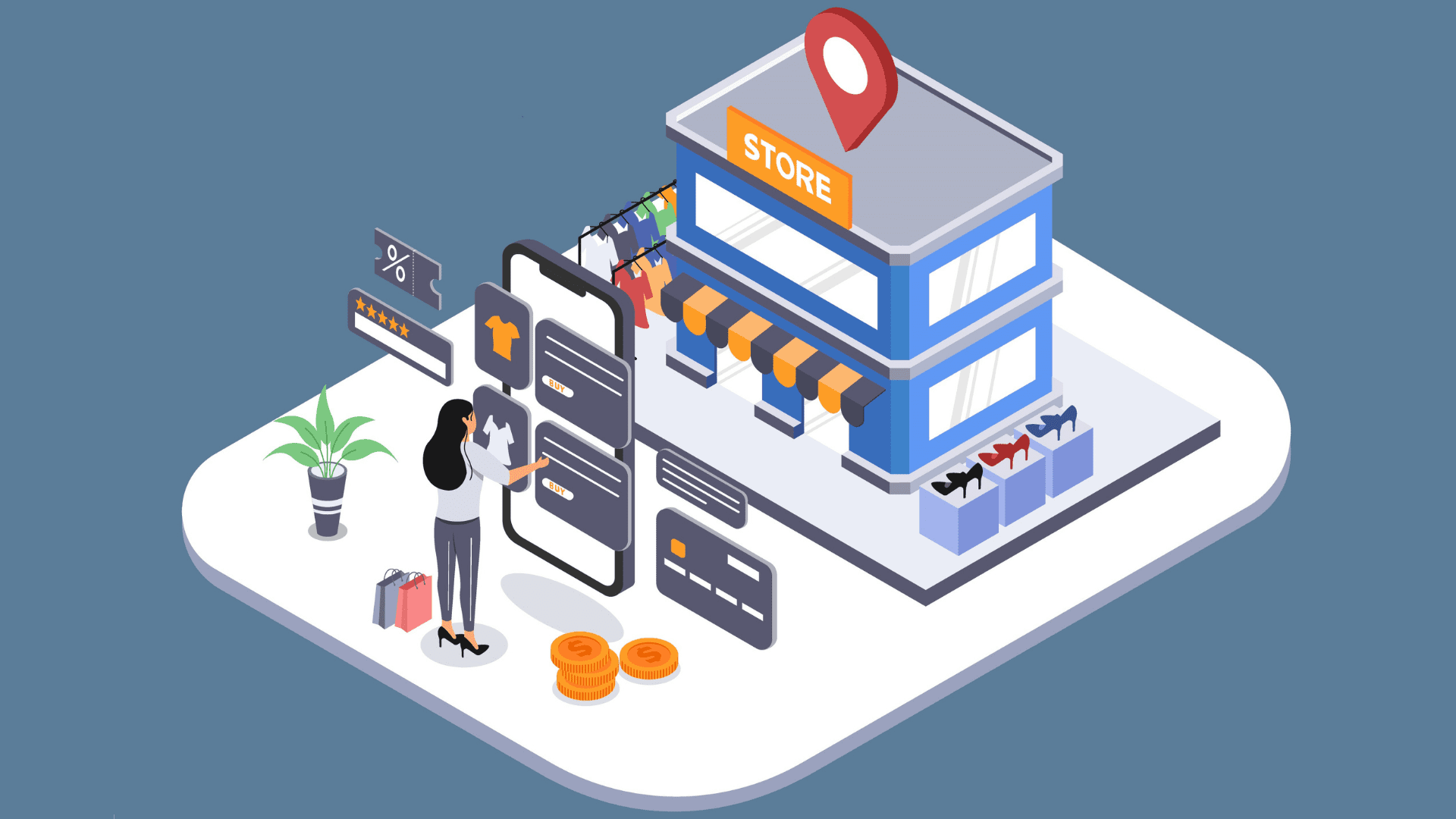Will E-Commerce Save Traditional Brick-and-Mortar Stores?
In an age dominated by digital commerce, the fate of traditional brick-and-mortar stores hangs in the balance. Will e-commerce emerge as their savior, or will it accelerate their decline?
As consumers increasingly turn to online shopping, the role of web development services becomes pivotal in the UK. How can these services bridge the gap between physical and digital retail spaces, and what can traditional stores employ to thrive in this evolving landscape?
Let's get into it!

The Experiencing of Shopping in Store
Sephora's $14.52 billion in retail sales in 2022 were largely generated by offline sales, indicating the persistent difficulties associated with virtual commerce in industries such as cosmetics.
It is still difficult to make the switch to exclusive online operations in industries where customers value being able to touch, feel, and smell products before they buy them.
The risk of returns increases when purchasing cosmetics online because customers might discover the products are unsuitable when they arrive. The negative impact of this return cycle on retailers' bottom line is not limited to the disruption it causes to the customer experience.
Therefore, despite the proliferation of web development services in the UK facilitating online sales, the cosmetics industry continues to grapple with the limitations of virtual commerce.
Many companies that still have physical stores have chosen to put more emphasis on inventory distribution, keeping a larger stock in warehouses to fulfill online orders more effectively and storing fewer items on site.
As a result, a consumer looking for a particular item—for example, the trendy Adidas Sambas—may discover that local retailers do not carry them in the size and color they prefer.
This situation can lead to a perception of the brand being low on popular items, insufficient inventory, and more, in addition to causing a missed sale for the day.
By improving online inventory visibility and customer shopping experience, using all-inclusive web development services in the UK can help reduce these kinds of problems.
San Francisco's Retail Shift: Valley Fair's Surge
In San Francisco, the noticeable downturn in traditional brick-and-mortar establishments has compelled residents to venture beyond city boundaries in search of their desired products and services.
A considerable 35% drop in sales at San Francisco Center from 2019 to 2023 led to a notable store exit. Comparatively, over the same time frame, sales at San Jose's nearby Valley Fair mall increased by an astounding 66%.
With its massive $1.1 billion expansion that will bring in exciting experiences, Valley Fair has had an impact on this change in customer behavior. Consequently, rather than being met with skepticism in the past, urbanites are now traveling south to engage in in-person shopping.
In a parallel context, the demand for diverse offerings, similar to the growth observed at Valley Fair, mirrors the evolving landscape of web development services in the UK.
Businesses are increasingly seeking comprehensive and innovative web development services to stay competitive and cater to the changing needs of their clientele in the UK.
Bringing Together Online And Offline Stores

According to a 2023 study by Momentive, as reported by Forbes, 88% of consumers express a desire for businesses to provide both in-store and online options.
Despite the closure of malls nationwide, retailers are not forsaking the brick-and-mortar model. Valley Fair's expansion is evidence of retailers' increasingly strategic approach to selecting and enhancing their physical locations.
To cater to the evolving preferences of consumers for both online and in-store shopping experiences, retailers must integrate web development services into their backend systems in the UK.
This integration facilitates the creation of seamless shopping experiences across all sales channels. Here's how retailers can achieve this:
- Optimizing Localized Search Results: We employ techniques to efficiently localize search results by utilizing our knowledge in web development. Consumers frequently begin their product searches online and then decide to visit a physical store if the item they've selected is available in the size and color they've selected locally. A potential customer might ask, "Where can I find Adidas Sambas in size 10 in the San Diego area?" as an example. Brands can improve online and offline engagement by directing foot traffic to local stores by matching online inventory with specific geographic regions.
- Enhancing Inventory Visibility for Seamless Multi Channel Experiences: Our web development services in the UK prioritize providing comprehensive inventory visibility across various channels, including physical stores and online warehouses. Understanding what products are available and where they are located forms the cornerstone of a smooth multichannel experience for customers.
- Implementing BOPIS Solutions: Our web development services enable the seamless integration of Buy Online, Pick Up In-Store (BOPIS) solutions in the UK. This not only ensures high-touch customer service and meets immediate shopper needs but also minimizes shipping expenses and labor costs for retailers. In areas such as the Bay Area, where consumers travel great distances for in-person shopping between San Francisco and San Jose, BOPIS proves to be a practical choice. We improve customer satisfaction and streamline operational efficiencies for retailers by enabling customers to pre-reserve items and check Valley Fair's inventory online.
Not just the product itself, but also its characteristics like color and size—or, in the case of e-commerce, not just the SKU but the particular variation—must be easily accessible.
Retailers' technology platforms must offer essential features, including personalized product recommendations and intelligent collections that enhance relevance beyond traditional assortments.
Currently, online sales account for less than 25% of Sephora's overall sales, which represents a four-fold increase over the previous six years and is expected to continue.
As physical storefronts are gradually being replaced by online stores, it is critical to optimize the technical aspects of online shopping.
Seamless integration of inventory across sales channels, localized search results on web stores, and the implementation of BOPIS (Buy Online, Pick Up In-Store) options enable retailers to offer a genuinely hybrid shopping experience, catering to evolving consumer preferences.
For a web development company in the UK offering comprehensive web development services, addressing these technical and experiential demands is pivotal to empower retailers in adapting to the evolving landscape of online commerce.
28 May 2024
 GBP (£)
GBP (£)
 USD ($)
USD ($)
 EURO (€)
EURO (€)







